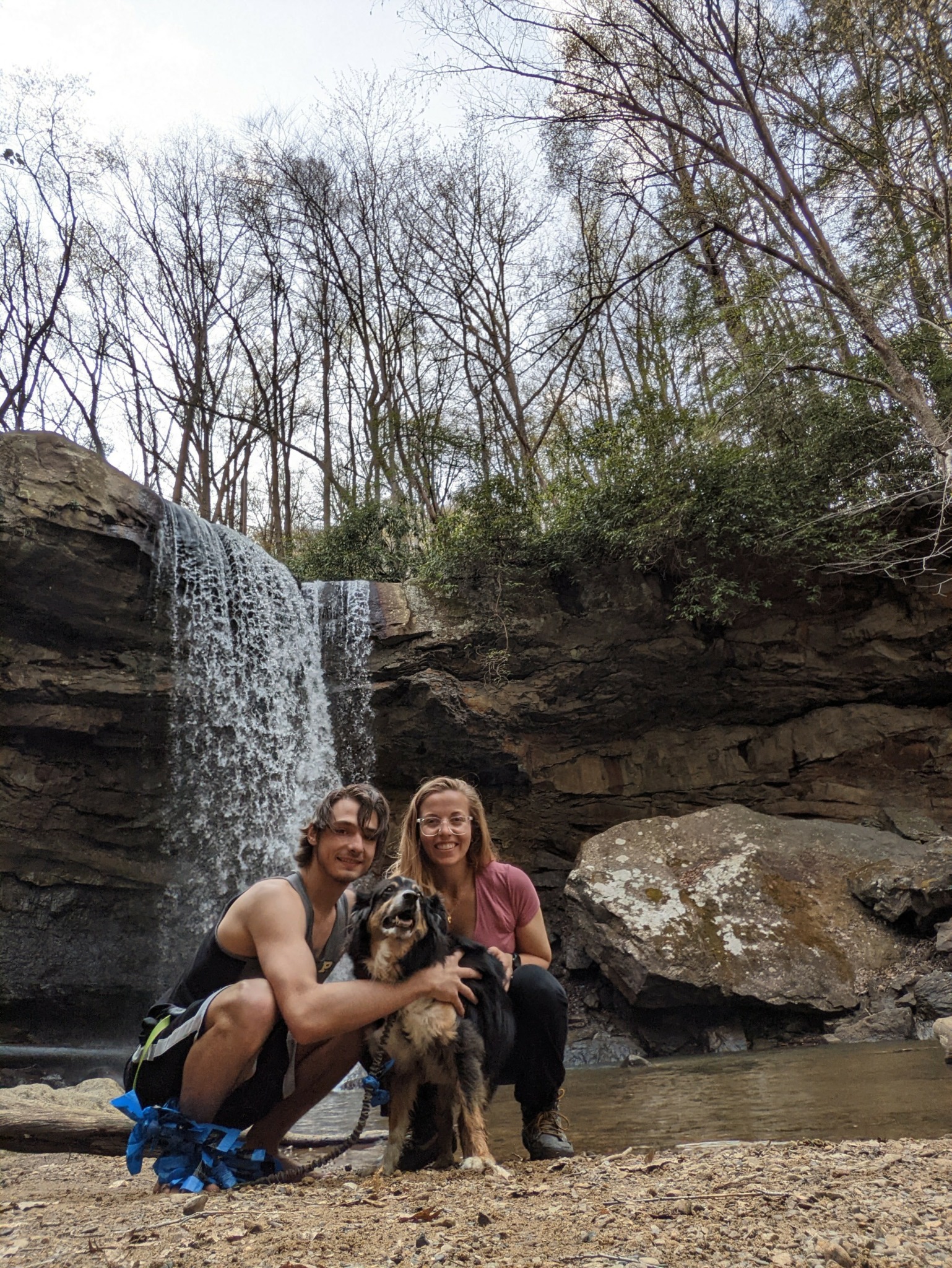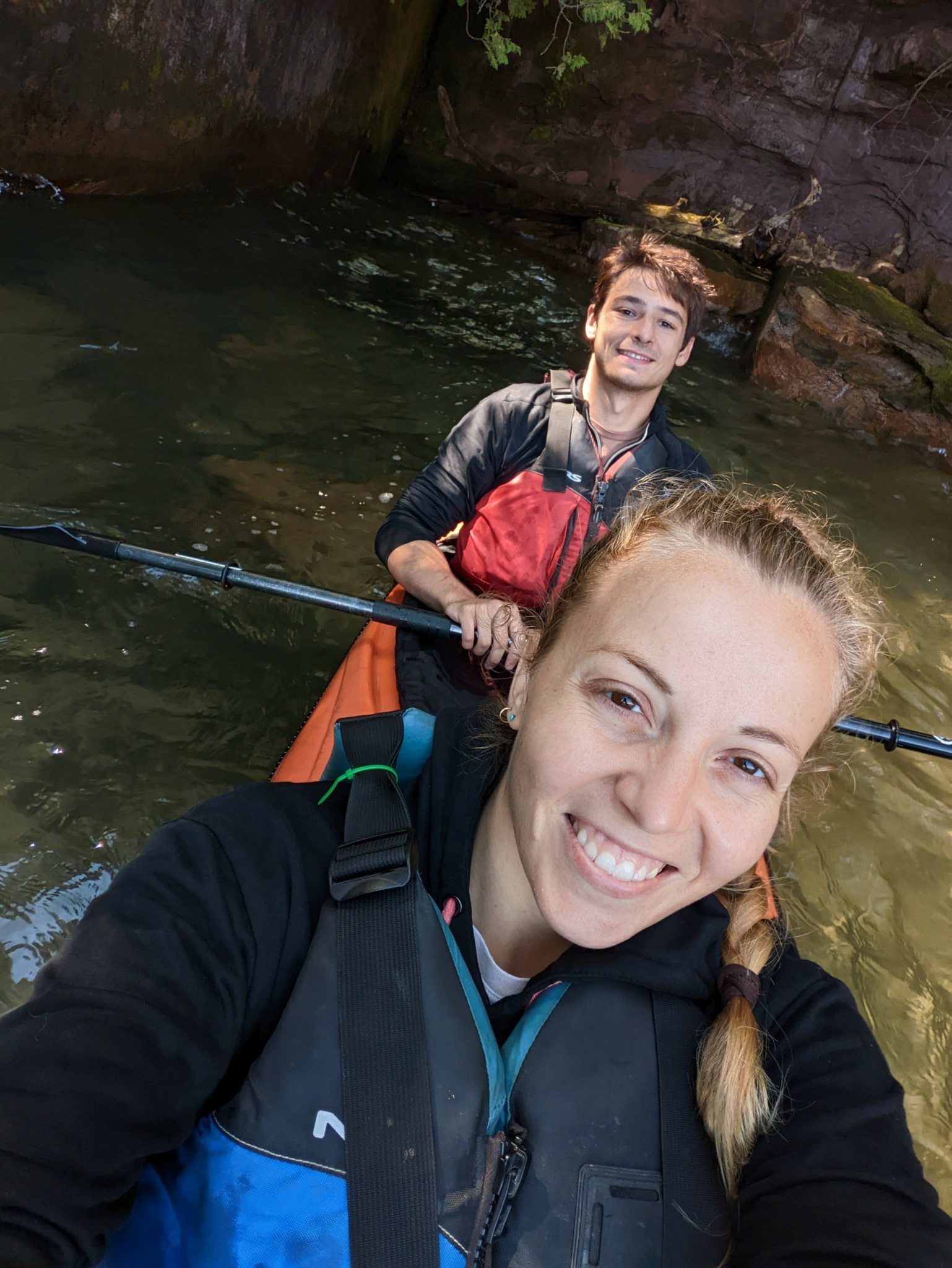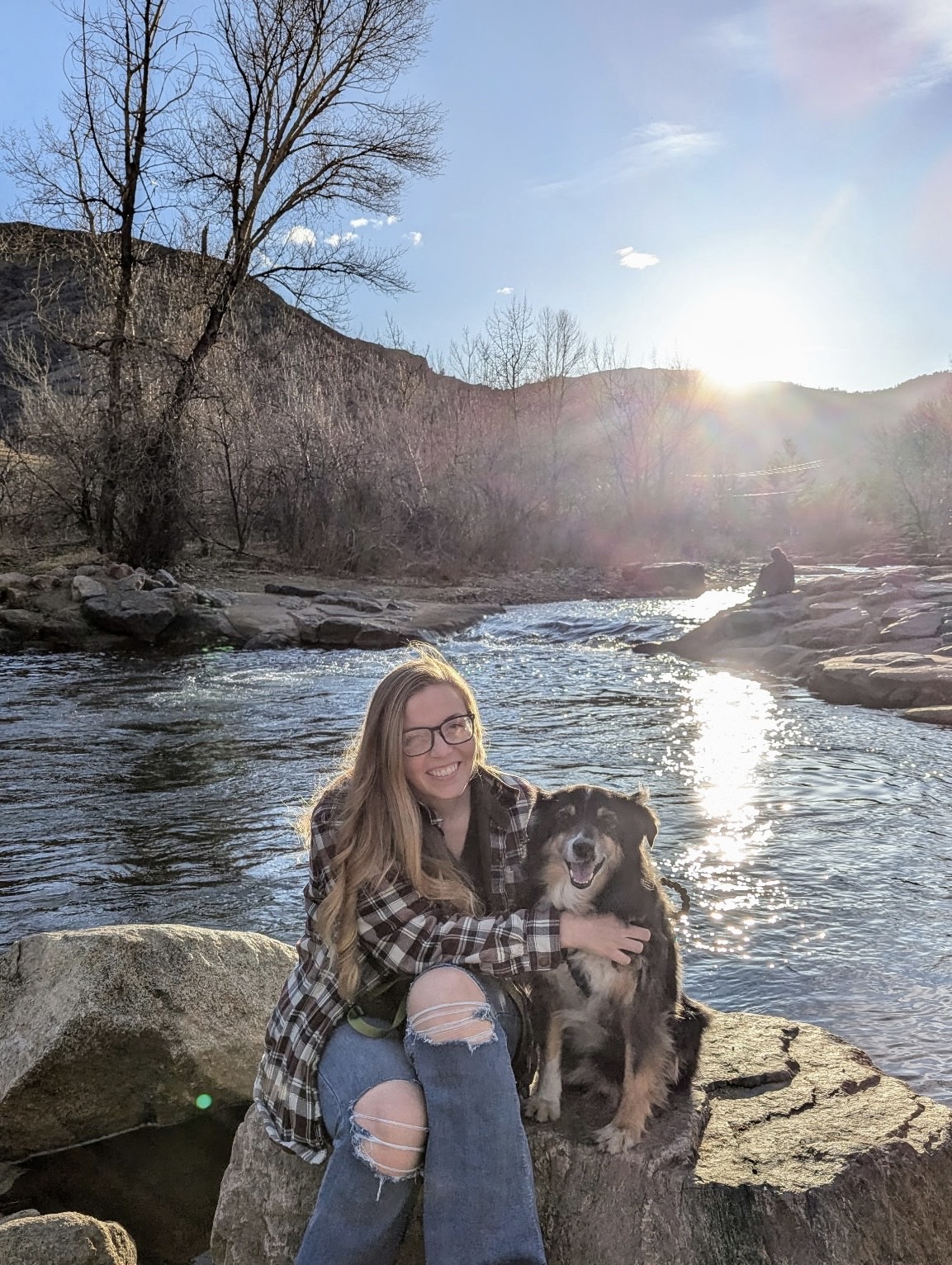We caught up with the brilliant and insightful Katelyn Adducci a few weeks ago and have shared our conversation below.
Katelyn, thanks for taking the time to share your stories with us today We’d love to hear the backstory behind a risk you’ve taken – whether big or small, walk us through what it was like and how it ultimately turned out.
One of the biggest leaps I’ve taken was starting my own practice. It was something I thought about for six years but never quite felt ready to do. I kept waiting for clarity or some perfect moment that never came. What finally helped me take the leap were a few deeply supportive people in my life—my therapist friends, my partner, and my dad—all of whom reminded me that I didn’t need to have it all figured out to start. Before launching my practice, I felt stuck—creatively, emotionally, and professionally. I’ve learned that clarity often follows action, not the other way around. I really love the Terence McKenna quote:
“Nature loves courage. You make the commitment and nature will respond to that commitment by removing impossible obstacles. Dream the impossible dream and the world will not grind you under, it will lift you up. This is the trick. This is what all these teachers and philosophers who really counted, who really touched the alchemical gold, this is what they understood. This is the shamanic dance in the waterfall. This is how magic is done. By hurling yourself into the abyss and discovering it’s a feather bed.”
That speaks to exactly what the leap felt like for me—terrifying, but also necessary. I wanted to create something that aligned with my values, where I could be fully myself and offer care in the way that felt right to me. It was a way of finally pouring into my own cup, something I talk about often with clients but have had to work hard to practice myself. I’ve learned that confidence is built through movement, not planning, and that fear can be met with compassion rather than avoidance. Since starting my practice, I’ve found a deep sense of alignment in my work and in myself. When you show up as your full self, the right people tend to find you. That’s a core belief in the work I do now, helping clients quiet their inner critic, take aligned action, and build lives that feel true to who they are.
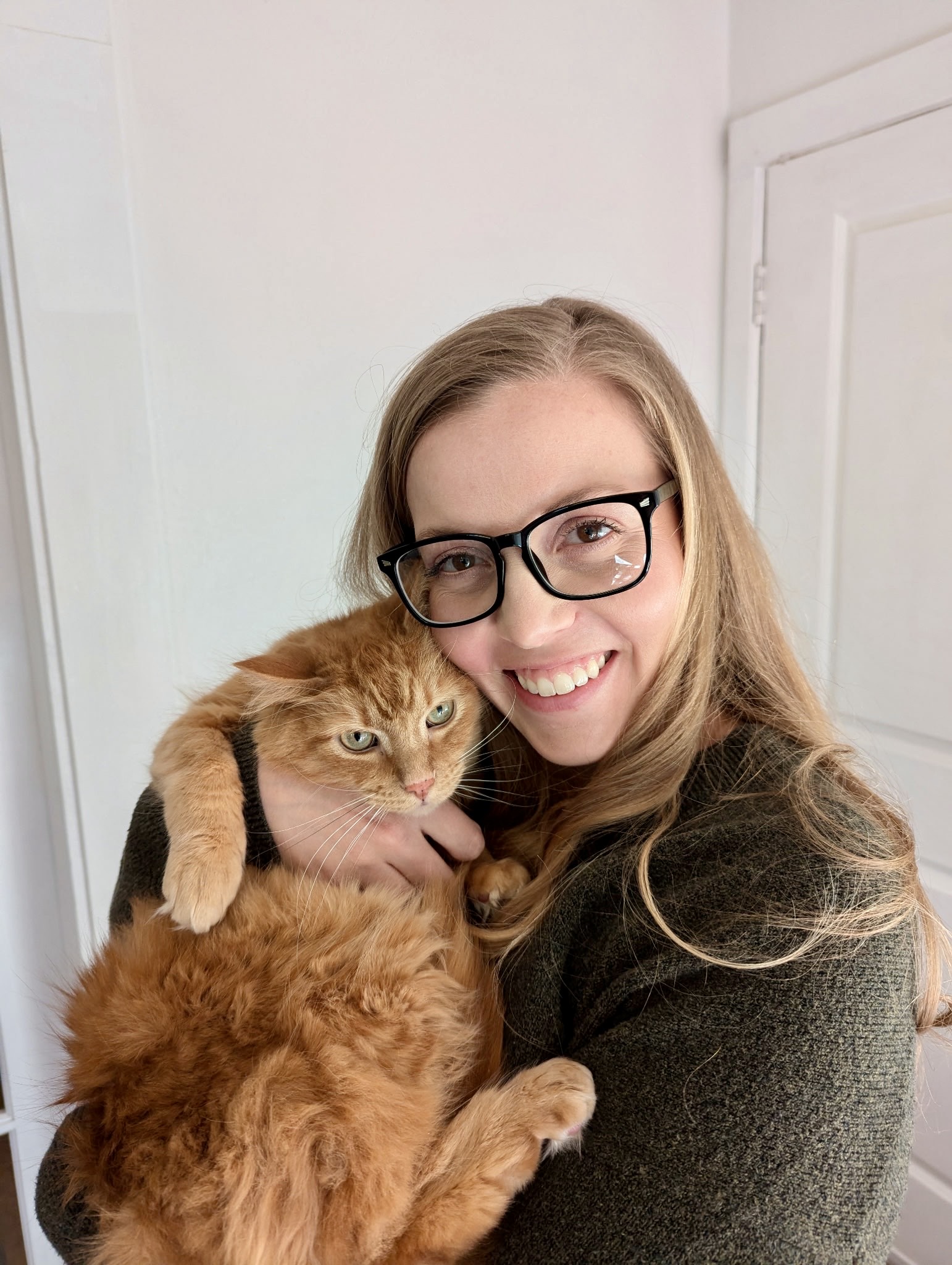
As always, we appreciate you sharing your insights and we’ve got a few more questions for you, but before we get to all of that can you take a minute to introduce yourself and give our readers some of your back background and context?
I’m a licensed clinical therapist and registered art therapist working virtually with adults in Colorado and Illinois. I started my career after undergrad working at an inpatient hospital, where I spent over four years supporting individuals navigating eating disorders, substance use, and co-occurring mental health challenges. It was during that time that I realized how much I was drawn to deeper, relational work. I decided to return to graduate school to become a therapist and art therapist so I could support people not just in crisis, but in longer-term healing and transformation. While in graduate school, I had the opportunity to work at Loyola Hospital in Maywood, Illinois with individuals and their family members undergoing cancer treatment. It was deeply moving and humbling work, and it reinforced for me how powerful it is to offer a steady, compassionate presence in moments of profound uncertainty. I also saw so much strength and resilience in the people I worked with, just as I did earlier in my career with clients in inpatient settings. Both of those experiences continue to shape how I approach therapy today, with genuine respect for what people carry. Today, I specialize in helping deeply feeling, creative people who’ve spent much of their lives tending to others start turning that care inward. Many of my clients are navigating trauma, anxiety, relationship patterns, or periods of feeling stuck. They often come to therapy knowing how to be compassionate toward everyone else but struggle to offer themselves that same grace. My approach is highly relational. I see the therapeutic relationship as central to healing, and my hope is that our work together feels like having a grounded, supportive person in your corner. That kind of presence helped me through hard times in my own life, and it’s the kind of space I aim to create for others—one rooted in safety and deep respect. I don’t aim to be an authority in anyone’s life. My role is to walk alongside you, helping you reconnect with your own voice and trust your gut, especially if you’ve spent a long time feeling disconnected from it. As both a therapist and an art therapist, I hold space for emotion, exploration, and creative processing. I work from a values-based lens and believe our difficulties are often purposeful signals, not signs that something is permanently broken. While I’m not fully anti-diagnosis, I tend to see labels as tools, not identities, and I want the people I work with to feel empowered, not pathologized. What matters most to me is supporting you in living more in alignment with who you really are, not who the world told you to be. What makes this work meaningful to me is seeing people step into themselves with more clarity, compassion, and courage. I’m proud to have built a practice that reflects my values and allows me to work with clients who are ready to live more intentionally. I truly love getting to witness people rewrite old stories, build healthier relationships with themselves and others, and come home to a version of life that actually fits. Outside of therapy, I’m an animal lover, a big music, film, and art fan, and someone who values time with my loved ones, meaningful conversations, and new experiences. I think people are endlessly fascinating, and I’m honored every day to walk alongside them for part of their journey.
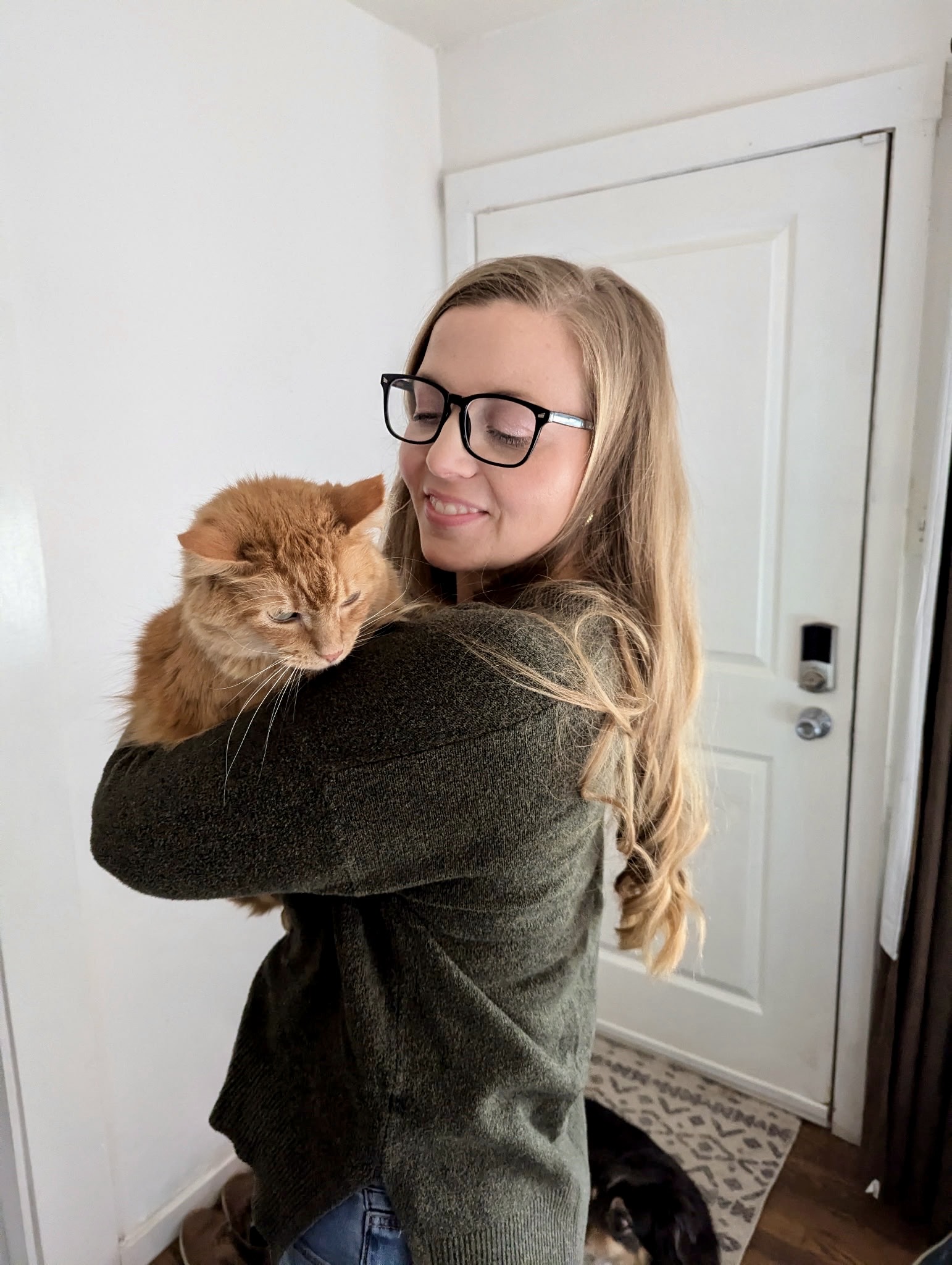
We’d love to hear a story of resilience from your journey.
Like many therapists, I came into this work through my own lived experience. I’ve faced difficult seasons in my life and began struggling with my mental health in adolescence. I didn’t always have the tools or self-understanding I needed to navigate those challenges well. For a long time, I thought I had to hold everything together on the outside and kept a lot to myself. I’m also a survivor of domestic violence, which shaped how I saw myself and my relationships for many years. What changed things for me wasn’t fixing myself. It was being met with care and non-judgment. When I began sharing more vulnerably with people I trusted—people who simply supported me without trying to fix me—something started to shift. That experience profoundly shaped how I approach therapy now. I know what it’s like to feel stuck in patterns that don’t serve you, to be hard on yourself when what you really need is compassion, and to wonder if real change is even possible. And I’ve also learned that healing isn’t about becoming someone new, it’s about returning to yourself in a deeper, truer way. Over time, with support and self-compassion, I’ve built a life that feels grounded, connected, and more fulfilling than I ever thought possible. That doesn’t mean I don’t still have hard days. I’m very much human. But I’m in a place I never imagined I’d reach. My past experiences and the kindness I’ve received from people in my life deeply inform how I show up for others. I offer this part of my story to say that I understand what it’s like to feel stuck and unsure of where to begin. I know how hard it can be to ask for help when you don’t even know what hope looks like. That’s why I take this work so seriously. It’s a deep honor to be trusted with the parts of people’s lives they may have never shared before. I’ve been in the darkness, and now I help others find their way through theirs, and I consider that one of the greatest privileges of my life. I wouldn’t be the therapist I am today without my struggles. They taught me that resilience isn’t about pushing through or pretending everything is okay. It’s about learning to listen inward, reach for support, and keep moving forward even when the path is uncertain. That’s the kind of resilience I see in my clients every day, and I’m honored to walk alongside them.
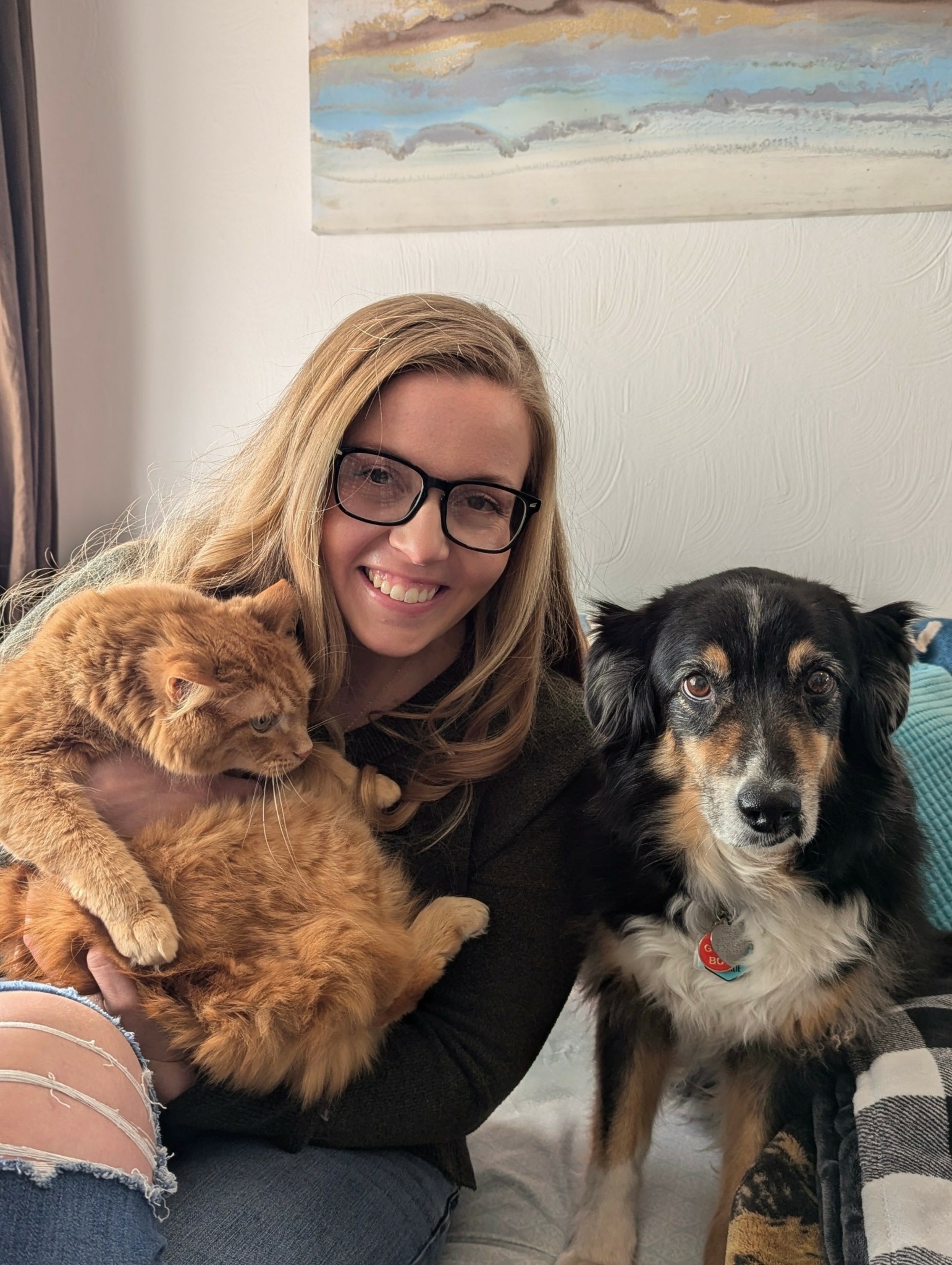
Training and knowledge matter of course, but beyond that what do you think matters most in terms of succeeding in your field?
Beyond training and knowledge, I think one of the most important qualities for succeeding in this field is being able to stay grounded in your own humanity while making space for someone else’s. That means approaching clients with deep respect, humility, and the understanding that they’re the expert on their own experience. It’s not about fixing, saving, or shaping someone into who we think they should be. It’s about creating a space where they can explore who they already are, without pressure to perform or prove anything. What I’ve found most powerful in the therapy process isn’t insight alone—it’s presence. It’s being able to sit with uncertainty, hold compassion without trying to control the outcome, and trust that people have an inner wisdom that’s often just waiting to be heard. This work requires ongoing reflection and a deep belief in people’s capacity to grow when they feel safe and supported. That’s what I try to bring into every session: a relationship that honors who someone is, not just who they think they’re supposed to be.
Contact Info:
- Website: https://katelyn-adducci.clientsecure.me./
- Other: https://www.psychologytoday.com/us/therapists/katelyn-adducci-denver-co/1458211
